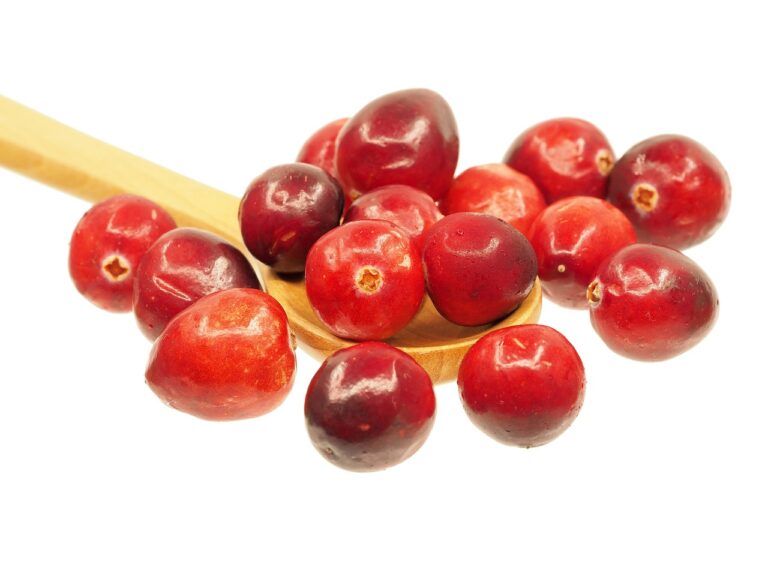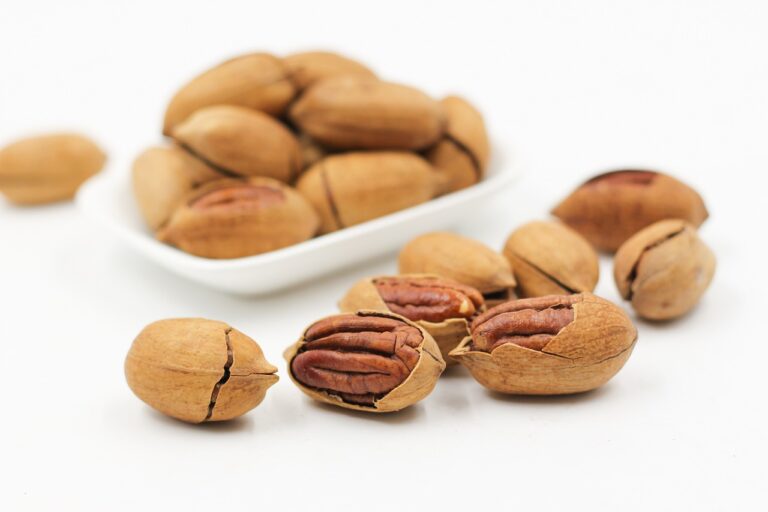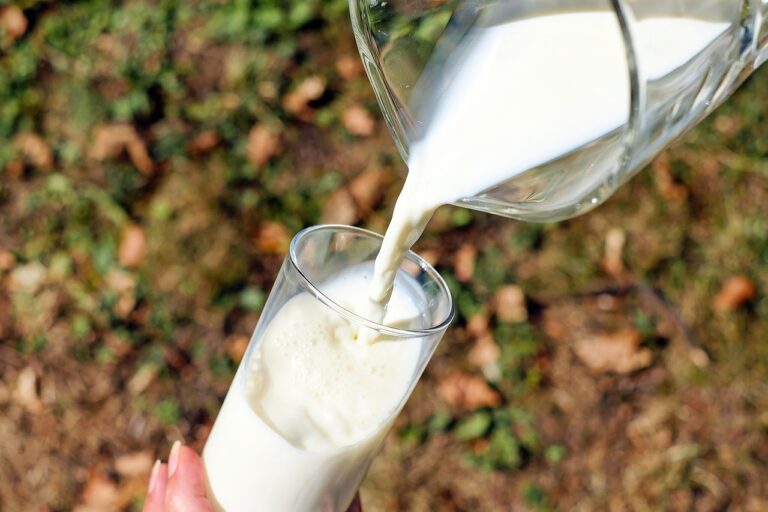10 Interesting Reasons Why You Are Craving Protein

Our body has a unique way of signaling what it needs, and one of these signals is cravings. When we think of cravings, we often picture sugary sweets or salty snacks, but a longing for protein is equally crucial to understand. This article will explore the phenomenon of protein craving and provide ten reasons for its occurrence.
Why Am I Craving Protein?
1. Muscle Repair and Growth
Muscle tissue constantly undergoes wear and tear, especially after physical activities such as exercise or heavy lifting. Consuming protein helps repair these damages and promotes muscle growth. When the body has undergone strenuous activities, it might increase the desire for protein-rich foods to help with this repair process.
Additionally, bodybuilders and athletes often have an increased need for protein. Their intensive training regimens place extra demands on their muscles, requiring additional protein to support recovery and muscle gain.
2. Hormonal Changes
Hormonal fluctuations, especially in women, can lead to increased protein needs. During menstruation, pregnancy, or menopause, there might be a heightened desire for protein-rich foods. This is the body’s way of signaling a need for more amino acids to support hormonal production and balance.
Furthermore, hormones play a critical role in regulating appetite and cravings. When certain hormones are imbalanced, such as ghrelin or leptin, the body might crave more protein to help restore equilibrium.
3. Blood Sugar Regulation
Maintaining steady blood sugar levels is crucial for overall health and energy. Protein can slow the absorption of sugar in the blood, helping to stabilize energy levels and mood. When blood sugar drops, one might crave protein as a way of ensuring steadier energy levels.
In contrast, constantly consuming sugary or carbohydrate-heavy meals can cause blood sugar spikes and crashes. Incorporating more protein can counteract these fluctuations, which is why one might feel a pull towards protein-rich foods after a carb-heavy meal.
4. Increased Metabolic Needs
The body’s metabolic rate can influence protein cravings. Those with a higher metabolism might find themselves craving protein more often, as their bodies process and utilize nutrients at a faster rate.
Physical activities, cold weather, or even mental stress can boost metabolism. In such situations, the body may signal the need for more protein to support its heightened metabolic demands.
5. Insufficient Diet
If someone’s diet is consistently low in protein, it’s natural for the body to start signaling its need. Craving protein might be an indication that one’s meals are lacking in this vital macronutrient.
Variety is key in a balanced diet. Without adequate protein sources, the body will inevitably start seeking them out, leading to intense protein cravings.
6. Growth Spurts in Adolescents
Adolescence is a phase of rapid growth and development. During this period, the body requires additional nutrients, especially protein, to support bone, muscle, and tissue development.
Protein needs are higher in teens compared to adults. Hence, adolescents might experience more frequent or intense cravings for protein-rich foods during growth spurts.
7. Stress and Anxiety
During times of stress, the body’s demand for energy increases. Protein can help in producing neurotransmitters and hormones that combat stress, explaining why some people might crave protein when anxious.
Chronic stress also affects digestion and nutrient absorption. In such cases, the body might signal a need for more easily digestible protein sources to ensure it’s getting the required nutrients.
8. Pregnancy and Lactation
Pregnancy and lactation are periods of increased nutritional needs. The developing fetus and the demands of breastfeeding mean that mothers need additional protein.
Craving protein during these periods can be the body’s way of ensuring both the mother and baby are getting adequate nutrients. Ignoring these cravings can have implications for both maternal and child health.
9. Immune System Support
Protein plays a vital role in supporting the immune system. Antibodies, essential for fighting off infections and diseases, are proteins. If the body senses a decrease in its ability to combat infections, it might crave protein as a way to bolster its defenses.
Moreover, after an illness or surgery, the body’s protein demands can increase. This is to support recovery and the rebuilding of tissues damaged during the illness or operation.
10. Brain Function and Mood
Amino acids, the building blocks of protein, are essential for brain function. They play a role in producing neurotransmitters, which regulate mood, sleep, and cognitive functions. An insufficient intake of protein can impact the brain’s performance.
Craving protein can be the body’s way of signaling a need for these essential amino acids. Satisfying these cravings can help improve mood, focus, and overall cognitive function.
Crave High Protein Rolls
Crave High Protein Rolls are designed to meet the needs of individuals seeking a convenient, high-protein dietary option. These rolls are packed with quality proteins that help in muscle repair and growth, making them an excellent choice for athletes and fitness enthusiasts. They also serve as a quick and satisfying meal replacement or snack for people on the go.
With their balanced nutritional profile, these rolls can support weight management efforts by promoting satiety and reducing cravings for less healthy options. The high protein content is crucial for maintaining energy levels throughout the day, supporting metabolic functions, and aiding in the recovery process after physical exertion. By incorporating Crave High Protein Rolls into their diet, consumers can ensure they are getting a significant portion of their daily protein requirements in a delicious and convenient form.
Crave Protein Chunks Beef
Crave Protein Chunks Beef is a product designed for those who prioritize high-quality animal protein in their diet. These chunks are made from premium beef, providing a rich source of essential amino acids necessary for muscle repair, growth, and overall health. They are particularly appealing to those following a low-carbohydrate or ketogenic diet, where protein plays a leading role.
These beef chunks are not only nutritious but also versatile, making them easy to incorporate into various meals throughout the day. The convenience of Crave Protein Chunks Beef allows for quick meal preparation, ideal for busy lifestyles. Furthermore, consuming beef protein supports iron intake, which is vital for energy production and oxygen transport in the body, making this product a beneficial addition to any health-conscious individual’s diet.
Craving High Protein Foods During Pregnancy
Craving high protein foods during pregnancy is a common phenomenon, driven by the body’s increased nutritional needs to support the growing fetus. Protein is essential for the development of fetal tissues, including the brain, and for expanding the mother’s blood volume. These cravings can also indicate the body’s intuitive effort to obtain the amino acids necessary for the myriad of physiological changes occurring during pregnancy.
Incorporating high-protein foods into the diet can help manage pregnancy symptoms, such as nausea and hunger pangs, by providing sustained energy and promoting satiety. Adequate protein intake is crucial for the health of the mother and the development of the baby, reducing the risk of low birth weight and premature delivery. Expectant mothers should heed these cravings as a cue to adjust their diet to meet both their own and their baby’s nutritional requirements.
Craving Protein After Workout
Craving protein after a workout is the body’s natural response to the need for repair and recovery of muscle tissues. During exercise, muscle fibers experience micro-tears, and protein is required to repair these tears, leading to muscle growth and strength. This craving is also a signal from the body that it needs the building blocks to replenish energy stores depleted during physical activity.
Consuming protein after a workout can significantly enhance the recovery process, reduce muscle soreness, and improve overall athletic performance. It’s not just about muscle repair; protein intake post-exercise also helps in the synthesis of new muscle proteins and enzymes that are crucial for fitness progress. Therefore, giving into these cravings by consuming a protein-rich snack or meal after exercising can support the body’s recovery and growth needs effectively.
Craving Protein And Fat
Craving protein and fat can stem from the body’s need for essential nutrients that support various physiological functions. Proteins and fats are crucial for hormone production, cellular repair, and the maintenance of healthy skin and hair. These cravings might also indicate a need for more substantial, energy-dense foods to satisfy hunger and provide sustained energy.
Fats, especially those from healthy sources like avocados, nuts, and olive oil, play a vital role in absorbing fat-soluble vitamins and providing essential fatty acids that the body cannot produce on its own. Cravings for these macronutrients can be a sign that the body is seeking balance and nourishment, particularly if one’s diet has been lacking in these components. Responding to these cravings with healthy choices can lead to improved satiety, energy levels, and overall well-being.
Craving Protein And Salt
Craving protein and salt can indicate the body’s demand for electrolyte replenishment and energy restoration. Salt cravings often arise after exercise or in hot weather when the body loses electrolytes through sweat. Protein, on the other hand, is sought after for its role in repairing and building tissues, including muscles that may be stressed from physical activity.
Combining the intake of protein and salt can help to quickly rebalance the body’s electrolytes, improve hydration, and support recovery processes. These cravings can also suggest a deficiency in diet or an increased physiological need, especially in individuals engaging in regular intense physical activity. Addressing these cravings with balanced nutritional choices can enhance performance, recovery, and overall health.
Craving Protein And Sugar
Craving protein and sugar together can be the body’s way of seeking a quick energy boost along with sustainable fuel. Sugar provides immediate energy by raising blood glucose levels, while protein offers a slower, more sustained source of energy by aiding in glucose regulation and satiety. This combination can be particularly appealing when energy levels are low or after periods of intense mental or physical exertion.
Responding to these cravings by choosing snacks that combine healthy proteins with natural sugars, such as fruit with yogurt or nuts with dried fruit, can satisfy the need for both immediate and lasting energy. It can also prevent the energy crashes associated with high-sugar, low-protein options. Making smart choices in response to these cravings can support overall energy balance and nutritional well-being.
Craving Protein At Night
Craving protein at night may be linked to the body’s efforts to repair and regenerate tissues during sleep. Protein is essential for the overnight recovery process, supporting muscle repair, growth, and the synthesis of hormones that occur during rest. Nighttime protein cravings could also be a sign that the body didn’t receive adequate protein throughout the day.
Consuming a protein-rich snack before bed can not only satisfy these cravings but also aid in improving the quality of sleep and the effectiveness of the body’s recovery processes. It’s important to choose lean protein sources to avoid consuming excessive calories or fats that might disrupt sleep. Addressing these cravings appropriately can support muscle maintenance, growth, and overall health.
Craving Protein During Pregnancy
Craving protein during pregnancy is an indicator of the body’s increased need for essential nutrients that support the growth and development of the fetus. Protein plays a critical role in the development of fetal tissues, including the brain, and in supporting the mother’s health by expanding her blood volume and aiding in the creation of amniotic fluid. These cravings are a natural response to the heightened nutritional demands of pregnancy.
Ensuring adequate protein intake during pregnancy can help to support fetal development, manage hunger, and maintain the mother’s muscle mass and strength. It can also contribute to a healthier pregnancy outcome by reducing the risk of complications such as gestational diabetes and preeclampsia. Pregnant women should respond to these cravings by incorporating a variety of protein sources into their diets to meet their increased nutritional needs.
Craving Protein In The Morning
Craving protein in the morning can be the body’s way of signaling the need to replenish and fuel up after a night’s fast. Protein is essential for kick-starting the metabolism, stabilizing blood sugar levels, and providing sustained energy for the day ahead. Morning protein cravings might also reflect the body’s natural preference for nutrient-dense, satiating foods that can prevent mid-morning hunger pangs.
Incorporating protein into the first meal of the day can enhance cognitive function, improve focus, and reduce the likelihood of snacking on less nutritious options before lunch. It sets a positive tone for nutritional choices throughout the day, encouraging a balanced diet. Responding to these cravings by consuming high-quality protein sources can support overall health, weight management, and energy levels.
Craving Protein Red Meat
Craving protein from red meat may indicate a need for specific nutrients that red meat is particularly rich in, such as iron, zinc, and B vitamins. These nutrients are vital for energy production, immune function, and the synthesis of DNA. Red meat cravings could also be a sign of an iron deficiency or a body’s preference for the heme iron found in animal products, which is more easily absorbed than the non-heme iron found in plant sources.
Choosing lean cuts of red meat can satisfy these cravings while minimizing intake of saturated fat and cholesterol. It’s important, however, to balance red meat consumption with other protein sources and a variety of fruits, vegetables, and whole grains. Mindful consumption of red meat in response to cravings can help maintain nutritional balance and support overall health.
Craving Protein Shake
Craving a protein shake can reflect the body’s need for a quick and convenient source of high-quality protein. Protein shakes are often sought after by those looking to support muscle repair after workouts, manage weight, or simply ensure adequate protein intake in a busy lifestyle. They can provide a rapid absorption of protein, making them an efficient way to meet dietary needs.
Protein shakes can also appeal to those looking for a satisfying snack or meal replacement that doesn’t require preparation time. Choosing a protein shake with low added sugars and high-quality protein sources can fulfill these cravings while supporting health goals. Consuming protein shakes can be a practical solution to meeting protein requirements, especially for active individuals or those with higher protein needs.
Craving Protein Snack
Craving a protein snack can indicate the body’s need for sustained energy and satiety between meals. Protein-rich snacks are effective at stabilizing blood sugar levels, reducing hunger, and preventing overeating at meal times. These cravings may arise from an intuitive understanding that the body requires more nutrients to maintain energy and metabolic functions.
Opting for healthy protein snacks such as nuts, Greek yogurt, or a hard-boiled egg can satisfy these cravings while providing essential nutrients. Such snacks are not only nutritious but also convenient for on-the-go lifestyles. Addressing protein snack cravings appropriately can help maintain energy levels, support muscle health, and contribute to a balanced diet.
Craving Protein While Sick
Craving protein while sick may be the body’s way of signaling its need for additional resources to fight off infection and heal. Protein plays a vital role in the immune response, including the production of antibodies and the repair of damaged tissues. These cravings can also reflect an increased metabolic rate as the body works to recover, necessitating more energy and nutrients.
Consuming protein-rich foods during illness can support the immune system, aid in recovery, and help maintain muscle mass that might otherwise be lost due to inactivity. It’s important to choose easily digestible protein sources when sick to avoid gastrointestinal discomfort. Listening to the body’s signals and responding with appropriate nutritional choices can facilitate a quicker and more comfortable recovery.
Not Craving Protein
Not craving protein could indicate that the body’s current dietary protein needs are being met, or it may reflect a shift in dietary preferences or energy requirements. It’s also possible that other macronutrients or specific tastes are temporarily more appealing or satisfying based on the body’s needs or external factors such as stress, mood, or activity levels.
However, it’s important to maintain a balanced diet that includes adequate protein intake, even in the absence of strong cravings, to support muscle health, immune function, and overall well-being. Regularly including a variety of protein sources in the diet can ensure that nutritional needs are met, regardless of fluctuating cravings. Monitoring overall dietary intake and adjusting as necessary can help maintain optimal health.
Sudden Craving For Protein
A sudden craving for protein might signal the body’s immediate need for the macronutrient to support muscle repair, growth, or other metabolic functions. This can often occur after periods of intense physical activity, significant stress, or when the diet has been lacking in protein. It might also indicate a rebound effect from a previously carbohydrate-rich diet, as the body seeks to balance its nutritional intake.
Responding to these cravings by consuming high-quality protein sources can help replenish the body’s needs, support recovery, and restore nutritional balance. It’s important to listen to the body’s signals and provide it with the nutrients it demands, as this can promote health, satisfaction, and well-being. A sudden craving for protein is a reminder of the body’s dynamic needs and the importance of a responsive, balanced diet.
Vegetarian Craving Protein
Vegetarians craving protein may be experiencing a sign that their diet lacks sufficient amounts of this essential macronutrient. Given that vegetarians exclude meat, which is a primary source of high-quality protein, they must find alternative sources to meet their needs. Legumes, tofu, tempeh, nuts, seeds, and dairy (for those who include it in their diet) are excellent vegetarian sources of protein.
These cravings can also highlight the importance of combining different plant-based proteins to ensure the intake of all essential amino acids. It’s crucial for vegetarians to plan their meals thoughtfully to incorporate a variety of protein sources. Responding to protein cravings with well-chosen vegetarian options can support muscle health, immune function, and overall vitality without compromising dietary preferences.
Conclusion
Protein cravings are more than just random urges; they are the body’s way of communicating its needs. Recognizing and understanding these cravings can provide valuable insights into one’s health and well-being. By paying attention to these signals and ensuring a balanced intake of protein, one can support the body’s numerous functions and maintain optimal health.






